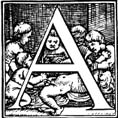
s bold and radical as Vesalius’ scientific methods could be, his stance was more circumspect on matters of religion and the soul.
By Daniel H. Garrison
Though Vesalius concentrated upon the physical construction of the human body, he did so in a tradition filled with imaginary constructs such as the four humors which are completely irrelevant to the body and its processes, chemistry, or pathology. He was clueless even about the circulation of the blood and thought the veins carried blood away from the heart, without a thought about where all that blood went. He remained trapped in an ancient theory of pneuma or "spirit" that was processed in the heart, refined in the brain, and delivered in the arteries along with blood. Yet he steered clear of the soul, as did his ancient predecessors in medicine even before it became the property of religious authorities.
As early as Homer (ca. 750 BC), the soul was something that flittered to Hades when a person died, and was clearly distinguished from who or what you were. Vesalius remained in that tradition, and allowed the soul to remain the exclusive preserve of religious zealots (about whom he had some choice words elsewhere!).
In Vesalius’ words:
“To avoid running afoul of some ‘idle talker’ here, or some critic of doctrine, I shall completely avoid this dispute concerning the types of soul and their location. For, today, you will find many judges of our most truthful and sacred religion, especially among the natives of my country, and if they heard anyone muttering about the opinions of Plato, Aristotle, Galen, or their interpreters, about the soul, even when the subject is Anatomy (when these subjects are especially likely to be discussed), they leap to the conclusion that such a person is in doubt about the faith or has some uncertainty about the immortality of Souls, without taking into consideration that physicians (provided they do not come rashly into their art or wish to apply inappropriate remedies to a sickened member) must think about the faculties that govern us, how many kinds there are, how each is marked, in what member of a living thing each is established, and besides these (if we can grasp it with the mind) chiefly what the substance and essence of the soul is.
"It is as if no one could make a statement about the ideas of those august authors without impiety or the smallest lapse of faith, or even support their reasoning with other new arguments, or refute the trivial arguments of others. It is as if no discourse or inquiry were otherwise possible about the sacred faith by which we are saved with the aid of pious good works and by which the souls of men gain a blessed eternity, except with reference to these latter dogmas and the opinions which a feeble human reason has supplied in this matter.”
[Bk. VI, Ch. 15, p. 594 (1543 ed.), pp. 1202f. (New Fabrica)]
